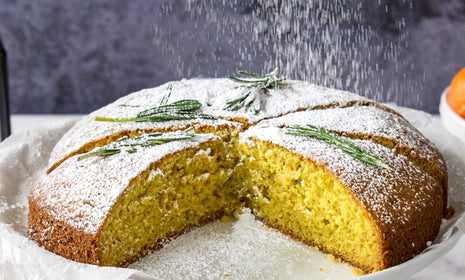Bright, fresh and sweet, the intoxicating scent of citrus floats on Sicily’s saline Mediterranean breeze, swaying through the hills like the gentle surf that caresses its shoreline. Across the verdant island, striking hues of yellow, green, and orange pop through curtains of greenery. This symphony of color, smell, and taste springs from sidewalks, crawls up mountainsides, and adorns roadways, making Sicily the iconic citrus paradise it is beloved as.

First introduced by Arab invaders in the 9th century, Sicily’s warm dry summers and wet winters proved a challenge for the golden fruits. With diligent care and the creation of sophisticated irrigation systems called qantas, growers were able to mimic the warm, damp climate of the fruits’ origin, quickly establishing Palermo as an important citrus growing and trading post. The discovery of citrus’ effectiveness in curing scurvy at the turn of the 19th century saw a boom in trade of the golden fruits, giving the port town its moniker: the “Conca d’Oro”, or “Shell of Gold.”
Through extensive research, botanists have discovered that the original species of citrus fruits were Mandarin, Citron, and Pomelo, and many believe they originated in the foothills of the Himalayan mountains. Through centuries of natural cross pollination and migration around the globe, thousands of variations have flourished across the world, taking root according to their climate and soil conditions.
In her exquisite book “The Land Where Lemons Grow,” Helena Attlee leads you through the rich history of Italian citrus fruits in enticing and enlivened detail. In Sicily, she explains, various bergamot species have flourished, peppering the countryside with its distinctive scent, as have a myriad of lemons varieties including the popular Feminello (known for their high juice content), Monachello (known for its great size), and the Interdonato (known for its smooth skin and delicate flavor). Infamous blood oranges gain their distinctive coloring from the volcanic and frosty foothills of Mount Etna, and of course, the beautifully sweet and treasured citrus deliciosa or mandarin whose easily removable skin made it a premium product at the turn of the 20th century.
As with all things that produce great profit, mandarins quickly attracted crime in Sicily, and became notoriously tied to the Mafia, posing great challenges to producers throughout the island. Over the years, great efforts have since been made to protect citrus producers throughout Sicily with a sincere commitment to keeping the industry uncorrupted and safe. Sicily remains one of the largest producers of citrus in the world.
An integral crop to Sicily’s history, economy and culture, citrus is braided into the sensory fabric of the island. Largely incorporated in the cuisine, it offers a distinguishing accent to Sicilian cooking. The fruits’ undeniably fresh and distinctive scents also color homes, stores, and even taxis. And while the delicious fragrance and taste are reason enough to celebrate the glorious golden globes, citrus fruits offer a number of known health benefits.

A great source of soluble fiber, citrus fruits also carry flavonoids, a nutrient rich in antioxidants and anti-inflammatory qualities that help to protect and strengthen your cells, and eliminate free radicals in your body. The ingestion of citrus is a great way to supplement your levels of the immune-boosting vitamin-C, which also helps to reduce inflammation, a condition which has been tied to various cancers, heart disease, arthritis, and memory loss.
As if these super-food qualities weren’t enough reason to celebrate the pithy, sweet and sour fruits, citrus contains antibacterial and antiseptic qualities, making them the perfect all-natural cleaning agent. Using essential oils collected from citrus’ thick rind, oils are used around the globe for therapeutic and medicinal purposes, as well as to permeate any space with the enlivening scent.
Though winter is largely celebrated as citrus season, with its ideal growing conditions, Sicily offers three harvest seasons, making it possible to enjoy the delicious fruits year-round. Whether you enhance your olive cake with a dash of fresh zest, or you want to balance your grilled pork chop with an acidic sweet and aromatic citrus salad, there’s really never a bad time to include that bright zing of flavor.





Be the first to comment